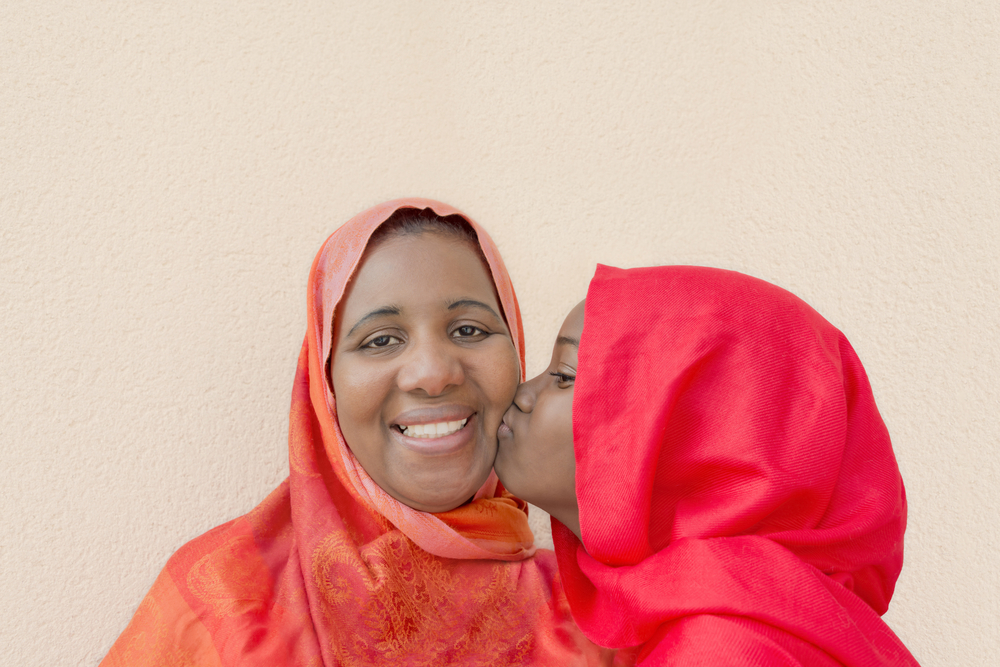#Life
Supporting Our Children’s Mental And Emotional Well-Being

Published

The topic of mental health is still taboo in the Muslim community. Sadly, I know of five Muslims who recently took their own lives after suffering from mental illness for many years. These tragedies are often misunderstood and families of these victims of mental illness are left reeling alone in their grief coupled by the painful judgment of people who scorn these victims.
We need to bring this topic out of the darkness and shine a light on the facts. Mental illness is a disease. It can be treated, but with varying outcomes. Often times, it is a lifelong battle that despite even the most aggressive treatment and support of family members, victims succumb to their illness by withdrawing from loved ones, suffering in silence and, in the worst cases, ending their lives. Mental illness is often hereditary or can be brought on by life circumstances.
As parents, we should facilitate healthy emotional wellbeing in our children as a way to help arm them against the inevitable hardships they will face in life. While for some children even our best efforts will be futile against a genetic predisposition toward depression or a severe biological mental illness condition, we still need to do our part by being conscious of caring for this aspect of our children. We are so concerned about how our kids are developing academically and in their deen, but we forget about their feelings. We need to make certain our tactics and efforts gear our children toward developing a healthy mindset and positive self-esteem. For some, this armor can be a shield during times of difficulty. If our efforts at home are not helping, know when to seek help from a mental health provider. There is great wisdom in reaching out to professionals who can better assess what your child might be experiencing.
Keep supporting MuslimMatters for the sake of Allah
Alhamdulillah, we're at over 850 supporters. Help us get to 900 supporters this month. All it takes is a small gift from a reader like you to keep us going, for just $2 / month.
The Prophet (SAW) has taught us the best of deeds are those that done consistently, even if they are small. Click here to support MuslimMatters with a monthly donation of $2 per month. Set it and collect blessings from Allah (swt) for the khayr you're supporting without thinking about it.
The US Department of Health and Human Services stated that the number of adolescents who experience at least one major depressive episode leapt by 60 percent between 2010-2016. Suicide deaths among people age 10-19 have also risen sharply according to the latest data from the Centers for Disease Control and Prevention.
Our children are of a generation where they are programmed for instant gratification, parents tend to swoop in and solve problems instantly for their children, attention span is short, and they are constantly connected to the digital world with everything at their fingertips immediately. The result of this modern lifestyle in our children is that they are not learning to be resilient and they no longer learn to develop a natural ability to persevere, to have the ability to keep working toward goals despite setbacks and failures.
So, how can we better raise our children to be able to operate at their optimal in today’s world, to have emotional strength and resilience? Here are a few tips and strategies I’ve compiled over the years from multiple sources that can help build confident children who know how to deal with today’s challenges:
Make Salah Part of Your Child’s Life: Allah swt will bless the lives of those who pray their daily prayers and your child will develop God-consciousness through this act. Teach your child to ask Allah for help daily. Pray with your children and remind them to pray. The gift of Salah was given to our prophet (pbuh) during one of the toughest years of his life, the passing of his uncle Abu Talib and his wife Khadija, and the severe persecution of Muslims. The act of prayer is a reminder to Muslims to turn to Allah swt during times of hardship.
Make Dua: By reciting the duas for everything from studying for test, to playing a game, to driving a car, to leaving the house, we are constantly remembering Allah swt. This is another way children find strength in their daily activities. By connecting all of our actions with Allah swt, we find support and strength in our Creator.
Let Them Go Outside and Play: Unplug your children and send them outside to play. Today’s youth spend on average just four to seven minutes outside each day in unstructured outdoor play such as climbing trees, building forts, catching bugs or playing tag, studies show. Yet, many children spend 3-4 hours each day in front of a screen. In recent years, the National Wildlife Federation released a comprehensive report showing the unique benefits of playing outside on mental health.
Participate in Afterschool Clubs/Activities: Having children participate in a team sport or club where they have to interact with a group of individuals to achieve a goal builds confidence and promotes teamwork. These interactions teach children how to express themselves, how to take critical feedback, and how to accept failure. They learn that sometimes they might lead the group and sometimes they will fall in line and have to be a participant of the group. Kids learn how each person is part of the overall success of the group or team. This is especially important as we are living in a time when everything is “I” – IPhones, iMacs, iPads. We need to teach children more about “WE”!!!

Let Children Help Around the House: Stop doing everything for your kids. Let them clean the dinner table, put the dishes in the sink, throw away the garbage, make their bed, clean their room, put their homework in their backpack, etc… Children will not learn to be independent and self-functioning when everything is done for them.
Stop Overpraising Your Child: A recent study done by Stanford University of toddlers showed that praising effort, not talent, leads to greater motivation and more positive attitudes toward challenges down the road. These findings are consistent with previous research, which has connected praise with increased motivation in children, but only when it is based on real attributes. Consider these making these alternative statements:
- Instead of saying “You are so smart!” say “You work so hard in school and it shows.”
- Instead of saying “You always get good grades. It makes me happy!” say “When you put forth effort, your grades show it. You should be so proud of yourself and I am proud of you.”
- Instead of saying “You are a great athlete! You could be the next LeBron James!” say “Keep practicing and you will continue to see great results. Good Job!”
Let Them Fail: This does not mean let your kids fail a class. Encourage your children to try new hobbies or activities, like an art project, a sport, or trying to learn how to rollerblade. Kids who can’t tolerate failure are vulnerable to anxiety and this can lead to bigger problems when they do inevitably fail. Children need to know that it’s ok to fail as this will happen throughout their lives. They need to know that it is a brave act to try something new, knowing that it might not work out. Shielding children from failure can create a fragile sense of self-worth. Being able to recover from any setback will be a valuable tool in their life. Help them to reframe the way they view failure by suggesting new ways to assess the experience, such as:
- If your child says “I’m so stupid” – teach them to instead ask themselves, “What was I missing in that assignment?” or “What could I have studied more?”
- Instead of “I’m not good at math (or any other subject)” – encourage them to say “I’m going to train harder in math (or any subject)”
- Instead of “This is too hard” – help them instead to see the obstacle as “This is going to take some time and effort”
- Instead of “I give up” – teach your child to say “I’m going to try again but this time I’ll use another strategy”
- Instead of saying “I made a mistake” – instead say, “Mistakes help me improve.”
Teach Your Kids How to Express Themselves: Having daily conversations with your child and letting them talk helps children to know you value their thoughts. Individuals who bottle up emotions and don’t talk about their feelings are more likely to struggle with emotional wellness. Learning to identify and express emotions in a positive and healthy way helps young children build astrong foundation of success later in life.
Encourage Your Children to be Active, Exercise and Make Healthy Food Choices: This is another developmental area that we have to be careful how we use our words. Even physicians don’t use the words “obesity” and “overweight” with kids. Instead, talk about health in general. Say things like “Being healthy is important,” and “I enjoy getting outside and walking with you.” If your child brings up to you his or her discomfort with how they look, listen to what they have to say and offer solutions for how your entire family can improve their health and make healthy choices. When the entire family makes healthy choices, a child doesn’t feel singled out and he or she will feel supported in efforts to be healthy. Children are sensitive about their body image and what others think of them, especially in preteen years but even as early as age 6. Develop healthy eating and exercise habits as a family even with your young children. Even very young children can develop low self-esteem about how they look. Make a habit of getting your kids moving for 30-60 minutes daily when they get home from school. Teach them to make better choices regarding food.
Community Service: Teach your children to share and help others. Research shows individuals who help others and do community service are happier than others who don’t. Spend time as a family volunteering at a soup kitchen, cleaning the park together, or attending a social justice rally. Allah swt will always help a servant who takes care of His creation.
Show Love to your Children: Kids need to feel and hear how much their parents love them. Hugging and showing affection to your children is crucial for children in building a positive self-concept. Fathers, especially, make an extra effort to show affection toward both your sons and daughters.
Do Not Buy Them Everything They Want: Life is not easy. If children are always receiving every gift they want, they don’t learn to value even the most basic necessities in life. Mashallah, many parents who are financially well off want to give their kids what they did not have but this can take away the drive of children to work hard and appreciate hard work and gifts.
Build Good Character in Your Children Starting When They are Young: If you instill good behavior and model good behavior yourself starting when your children are young, they are more likely to naturally develop good character. Learning to control one’s anger, to respect elders, to say please and thank you, to share, and take care of guests are all acts children must begin learning very young. These selfless acts help children to know that life is not just about them.
Teach Patience: Allah reminds us that Allah is with those who are patient. Life is full of ups and downs in health, wealth, family and more. All of us will be tested in at least one of these areas. Help your children realize solutions are not always going to be instant. Sometimes resolutions will take time.
Finally and most importantly, if you see your child or family member really struggling, Get HELP! Going to a therapist, counselor, or psychiatrist is not wrong and can be life-saving. I have seen adults not receive help because of what people would say or because families discount the severity of a person’s symptoms, telling him or her that their emotional issues are because they lack imaan or that it’s black magic. Certainly seek spiritual help but, at the same time, get help from medical specialists who Allah created to help people suffering with mental illness. There are medications that can help treat mental diseases and counseling that can help alleviate suffering. May Allah guide us and protect us all and grant us the ability to have compassion for those suffering from any illness.
NOTE: Many thanks to MCCA School Counselor Dr. Samar Harfi, PsyD., for her oversight and contributions to the content of this article.
Keep supporting MuslimMatters for the sake of Allah
Alhamdulillah, we're at over 850 supporters. Help us get to 900 supporters this month. All it takes is a small gift from a reader like you to keep us going, for just $2 / month.
The Prophet (SAW) has taught us the best of deeds are those that done consistently, even if they are small. Click here to support MuslimMatters with a monthly donation of $2 per month. Set it and collect blessings from Allah (swt) for the khayr you're supporting without thinking about it.
Habeeb Quadri is the MCC Academy Superintendent and Chairman of Muslim Youth of North America Advisory Board. He was one of five private school leaders to be selected for the 2019 class of nationally distinguished principals by the National Association of Elementary School Principals.


Nationalism And Its Kurdish Discontents [Part II of II]: Kurds And Turkiye After Ottoman Rule

Nationalism And Its Kurdish Discontents [Part I of II]: Kurds In An Ottoman Dusk

Moonshot [Part 10] – The Marco Polo

Moonshot [Part 9] – A Religion For Real Life

Genocidal Israel Escalates With Assault On Iran

Moonshot [Part 9] – A Religion For Real Life

Moonshot [Part 10] – The Marco Polo

Moonshot [Part 8] – The Namer’s House

Moonshot [Part 7] – The Abyss Stares Back

Moonshot [Part 6] – Down These Mean Streets

[Dhul Hijjah Series] Calling Upon the Divine: The Art of Du’a (Part 1)

IOK Ramadan 2025: Four Steps | Sh Zaid Khan

IOK Ramadan 2025: Do Your Best | Sh Zaid Khan

IOK Ramadan 2025: Giving Preference to Others | Sh Zaid Khan







Jovariya
January 4, 2018 at 11:29 PM
This was a wonderful read! Jazakullah khair for sharing it! It’s very difficult sharing the struggles of living with a mental illness because it makes us feel vulnerable, but its something that needs to be discussed because so many Muslims are struggling with depression and don’t understand it or have access to the resources to heal themselves, so these tips for parents are helpful. However, having a professional involved is important, because whenever I discussed my depression (sort of indirectly) with someone who couldn’t relate or understand it, it felt like they dismissed it or believed that I was a weak person. Parents should pay attention if they notice their children being more reclusive or seem to be sad most of the time and seek help. I have been able to hide this illness from many people, because I’m usually described as a happy and positive person, so it’s an illness that can be hard to identify. Although when my depression was worst I would force myself to go out, sometimes it helped and other times it just made me feel worst. Alhamdulillah, praying and Islam itself has helped me tremendously coping with it, however depression is still there lurking in the background thats why seeking resources to heal it is absolutely essential. It’s a constant (daily) battle, I wish I didn’t have to deal with it, but alhamdullilah I am looking forward to a happy ending inshallah :)
Amatullah
January 8, 2018 at 5:26 AM
This was an amazing read! SubhanAllah
may Allah bless you for writing this. I was only wondering how to make sure my child grows into a not-only-righteous but also a healthy and responsible individual
Monique Hassan
January 8, 2018 at 4:20 PM
Mental health is my field of specialty, it is all too sad and real that so many within the ummah from depression or anxiety etc. and often do not seek treatment or do not understand what it is.
This is a great article that explores practical and real world advice. Our children need us to show them the best examples and be a real part of their lives. Pray with them, play with them, create with them, listen to them. They grow up before we know it.
:-) Jazaki Allah Khairan
Umm
January 14, 2018 at 9:24 PM
I just sent a private message to MM….please guide me by answering my question. If shayookh here can help or if u can pleaseeeeeee fwd my message to sh Yasir qadhi…birjas or walked basyouni….
I’m desperately waiting for an answer. Please help
Aly Balagamwala
January 17, 2018 at 6:29 AM
Dear Umm
Where did you send this message? My advice to you would be to approach these scholars through their respective Facebook pages as it would be faster and more private for you.
Best Regards
Aly
Comments Team Lead
Hannah
January 18, 2018 at 5:52 PM
The mental health of children is very important. Parents must always listen to their children so that the children feel that their opinions, concerns and worries are worth considering. Parents must also protect their children from outside influences which seek to psychologically abuse or corrupt them. I say this a person who was very subtly psychologically abused by teachers as a child of 11/12 until I was 15. They did everything to make me feel unwelcome and as an outsider in school. I began skipping school and my education suffered. I wanted to move school but my mother said that I was just being paranoid so I stayed at that particular school for too long. At school gatherings some of the teachers would stare at me and smirks to each other and make snide comments. I developed anxiety and psychological problems later in life. I believe they will get their just desserts but you must be careful who you entrust with your children. Sometimes those who are supposed to nurture them can end up destroying them. It is the mental scars which are sometimes harder to heal than physical ones.
Dr farheen
September 18, 2021 at 10:49 PM
One of the best article on mental health problem solving.
The writer has a deep thinking, amazing approach.
Thanks very much for writing such an important topic.